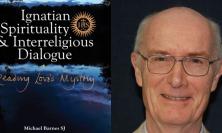The late Robin Williams’ character in Dead Poets Society is often hailed as a paradigm of an inspirational teacher. But his words to his students – ‘Carpe diem, seize the day boys, make your lives extraordinary’ – are further away from the Gospel than we sometimes think, says Damian Howard SJ. He offers a more nuanced model of what it means to form ‘men and women for others’, as Jesuit educators aspire to do. How does the Ignatian spirit enrich the life of a school?
I wonder how many schoolteachers would actually see spirituality as even an element in their professional work. And yet, even a cursory comparison with other professions will reveal an instinctive tendency we have to see teachers as, at least potentially, spiritual figures. Fictional representations are a clue to this not-so-hidden intuition. One such portrait of the teacher as spiritual guide would be John Keating, the character played famously by Robin Williams in Dead Poets Society, a figure who has done far more to make teachers feel inadequate than any inspector! Whether you find Keating an inspiration or an irrelevance, you cannot ignore the fact that he manages to key into the imaginations of his young charges and lead them towards a life-changing experience, a goal most teachers, in my experience, regard as worthy of emulation. He instructs his pupils to seize the day (Carpe diem!), to overcome their inhibitions and to live life to the full, a notion which might to some ears sound vaguely compatible with the Gospel but which to my taste is too tightly subtended by an almost nihilistic suspicion that ‘tomorrow you shall die’. This seductive portrayal of American romanticism is a spirit which, these days, we are practically hard-wired to find intoxicating – but it is very far from the spirit of Christ.
My interest here is to look at the spiritual dimension of teaching and to outline the component parts of that particular spirit we have come to call ‘lgnatian’ as it might be lived out in a school context. What does a school look like in which a significant number of the teachers are actively involved in ‘finding God in all things’? And in what ways might it be – to use a rather unfashionable term – countercultural?
FINDING GOD IN ALL THINGS
It is that exasperating phrase which says so much and so little about what lgnatian spirituality is all about. This is not the place to explain and develop the content of the Spiritual Exercises which are the privileged means by which people learn to ‘find God in all things’, but there are two things that need to be said. Firstly, that it is a skill which needs to be learned from another and worked at as part of the discipline of a reflective life. It has a great deal to do with habits of the heart, rhythms of daily prayer and meditation, and above all with the development of a kind of perception which most ‘secular', and many religious people are not even aware exists – what one might call attentiveness to the action of the spirit. Secondly, that expression ‘all things’ does not imply a kind of moral vacuum – as if one could find God in cannibalism or blood sports – but rather an openness to every area of human activity. It has been one of the more perverse effects of modernity to compartmentalise our lives into non-communicating fragments – we have ‘private’ lives, ‘professional’ lives, ‘sexual’ lives, 'family lives, and ‘spiritual’ lives, to name but a few of the more prominent sectors, but precious little to integrate them. The lgnatian tradition asks us to draw all of these together: our faith, our politics, our aesthetics, our sense of humour, our capacity for friendship, and indeed everything which passes for the human.ls that counter-cultural these days? Radically so, I believe. A spirituality which holds out the promise that a whole world of experience is out there, waiting to communicate the mystery of God to us, sits rather uneasily with the compulsive mind-set which places the latest reality TV event at the centre of things.
What happens when this ‘engine’ of finding God in all things is at work inside us? How is our character, our very being, subtly but importantly transformed when we adopt the practices and habits which Ignatius recommends to us? I would say that there are seven key movements in the lgnatian spirit, and I want to sketch them below.
Jesuit humanism
These days, ‘humanist’ has become a kind of sloppy synonym for atheist or agnostic. This is a somewhat regrettable usage from a Jesuit point of view, as it seems to rule out the possibility of a Christian humanism, and this is something that is very dear to us. People are often surprised at this, but the reason for our concern for the human comes from the key insight of Christian belief, that in Jesus of Nazareth, God united himself once and for all to humankind. It is a startling claim but one that is lethal for certain kinds of religiosity. If God sees his world with human eyes, if he appreciates what signifies on a human scale, if our concerns and worries our joys and hopes register on his divine radar, then the very least we can say is that they matter. Sometimes people fail to take their own lives to God in prayer because ‘he has much bigger things on his mind’. Occasionally you meet people who are alienated from their own desires or inclinations because somehow they have learned that there is a way they ‘should be’ which trumps the way they are. And all of us, at some time or other, feel isolated and alone in the cosmos and (increasingly) in a human world which seems impersonal. These are all symptoms of a spirit abroad in our world profoundly opposed to true humanism.
For Jesuit humanism, man can never be ‘the measure of all things’, but God, in his grace and mercy, can approach us in such a way as to accommodate us and our foibles. Next time you find yourself giving that lesson on interest rates or on the First World War, remember that Jesus knew what it was like to live in a human economy, to engage with (and be crushed by) the forces of history. When those irregular verbs come up, you might spare a thought for the difficulties faced by Jews and Christians in first century Palestine as they struggled with Hebrew, Aramaic and Greek, and no doubt with Latin and other imperial tongues, and as they juggled translations and mistranslations of sacred texts. Jesuits have, over the centuries, been rather good when it comes to exploring and relishing all these different phenomena. Their openness to the cultures they met beyond Europe often contrasted quite startlingly with the evangelising approach of other missionaries who were convinced they had a universal, almost abstract message to get across and they had to overcome the rather tiresome local way of seeing things if they were to succeed. The Jesuit suspicion is always that somewhere in the quirky details of human life there is treasure to be found, a way of breaking open the mystery of Christ which can speak immediately to a soul in a way that a euro-centric, propositional approach never could. This key insight must surely give any teacher the confidence to know themselves to be at the heart of the spiritual mission of a Jesuit school. It is not only the RE department which imparts spiritual direction when the spirit of Jesuit humanism is at work.
A sense of wonder
The Christian humanist is open to a double sense of wonder: not only at the extraordinary richness, diversity and depth of human experience, but also at the nobility and generosity of the God who joins us in it. The capacity to generate this contemplative ‘wonder’ is not the sole domain of any academic discipline: I have heard teachers of science and English literature tell me with equal confidence that their students have achieved states of wonderment. And that is how it should be. To be caught in amazement at the beauty, subtlety, symmetry or whatever of something we are studying is a key spiritual gift. It is to be able to ‘lose yourself’ in something other, and we know from the Gospels that it is only in losing ourselves that we find them. It happens more frequently than we are likely to notice. One of my fondest memories of a Flemish Jesuit sociologist who taught me a great deal came when he was asked how he had spent his day off: ‘l watched the rain drops on the window pane’. What a waste of time, I thought, and so it was; wonderment is a waste of time – it really is about losing something, but a fruitful loss, one which strangely opens us up to Another. Ignatius liked nothing more than to look up at the stars...
Intensity of regard
So, you have found God in all things, you have immersed yourself in the human world and you have cultivated the habit of letting a sense of wonder touch your soul. What tends to happen at this stage is that people develop a quite remarkable focus and stillness in themselves: not the intensity of someone resolutely refusing to see the funny side of life, but an extraordinary peace, an attentiveness which comes with having gained the skill of centring the butterfly mind. It is a great gift and one which enables a person to navigate the hazards of life without being thrown off course by turbulent emotions or silly distractions.
Ignatius was well aware of this intensity of purpose and when he writes to a group of Jesuit students he says this: ‘See that you maintain a holy, discriminating verve as you work to acquire both learning and virtue. With both of these one intently performed act is worth more than a thousand done lackadaisically.’ He is talking about a peak moment of integration, when our intentions, energies, minds and bodies are united about a single task. It is not, perhaps, the norm for most of us, but there will have been at least a few instances of such intent in any life. Perhaps it was on the sports field, in the chamber orchestra or in a debating exercise. Such moments tend to stand out in the memory although frequently without being acknowledged for the profound experience they were. I think a Jesuit school ought to aim at these moments; they should be places where care is taken to do even small things. Deliberation and painstaking preparedness witness to a countercultural value system, one in which we see a single, discrete act as being able to contain to the infinite love of God. When Christ says ‘it is accomplished’ from the cross, we sense not only the gravity of sacrificial death but also the immense care taken over every moment of his ministry, over every individual person met, over every word uttered and every silence borne.
The challenge of the truth
We are moving gradually from the existential to the ethical and that, itself, is significant. Too often we reduce the particular content of a faith tradition to its ethics as if the various choices they make were somehow arbitrary. What I want to suggest here is that if we are people of the truth then it is because we have had an experience which enables us to be.
It is important to recognise that the things that usually stand in the way of our hearing the truth are those that make us feel better about ourselves. If, however, you are steeped in the life of God, then a decisive freedom comes into operation - the freedom to accept just how bad things are. That sounds bleak, I know, but look at all the frivolous ways we have of forgetting the dire straits we find ourselves in. Escapism, changing the channel, drugs, computer games, whatever it takes to remove uncomfortable thoughts from my mind, are all so much more attractive than facing hard truths full on.
Education, if it is worthy of the name, must equip young people at least to cope with the notion that truth is there. Establishing what that truth is invariably involves technique and that itself is an immense challenge. All our academic disciplines engage with ‘truth’ to a different degree, but the great obstacle to truth is not in itself technical but spiritual, and this is what makes the movements of the lgnatian spirit I have outlined so far such an asset.
Cultivating gratitude
If we really are free to see the truth, then we are free too to know the deepest (and to some, the most painful) truth of human existence, that all is gift. Of ourselves we are nothing. That is not how we want it; we crave being something, someone. It is humiliating to see that my body, my culture, my talents, my capacity for language, even the prayer that courses through my spirit, everything about me is ‘given’. I appear to have lost my ‘self’.
I risk sounding rather post-modern here. However, Denys Turner puts it finely when he draws a distinction between the postmodernist seeing everything as given and the Christian believer construing life as a gift. For the latter, it's personal. Where I find myself, who I find myself is quite literally meant. Meant for me. So it is not something to be regretted that I am not whatever chimera my (culturally constructed!) desires would have me be. I do not have to be something I am not. In fact, chasing such phantoms is bound to be detrimental to my spiritual health. Nor do I have to apologise to others for how things are. But what I do need is to be grateful.
The first part of this, you will recognise, is nothing other than the discovery of self which is such a vital and agonising part of the adolescent adventure. Young people are immensely receptive to the notion that things are as they are for a reason, that there is a purpose behind the appearance of the arbitrary. But given half a chance they will take this insight in the rather un-Christian direction of thinking that all that arises is God's will. We need to direct them towards the cultivation of gratitude, a quite different movement of the spirit. And that can only be the kind of radical gratitude which Ignatius has in mind in his First principle and foundation when he points out in the most provocative way possible that we should not only be receptive towards the ‘good’ things which come our way but also towards those which we do not find so attractive.
Gratitude is much more than just saying grace at meals or thanking God for exam success. It is about our capacity to celebrate the way God is at work in our lives, even in darkness. The only way it gets transmitted is by being lived; by being grateful for the disruptive child at the back of the class, for the imminent arrival of the school inspectors, for the latest hare-brained initiative from senior management or the mean-minded carping of colleagues who refuse to see the big picture. It is that easy and that hard.
Co-operating with God’s grace
It must be clear by now that the God we find in all things is a God who is alive and active in all things. He is always up to something, drawing us into himself. But that takes different forms at different times: perhaps helping me accept myself in one moment, challenging me to generosity in the next, much as Jesus seems to have been able to speak differently to individuals on various stages of their spiritual journey, encouraging one, admonishing another (sometimes in quick succession, especially for Peter). If God is at work in individual lives then it stands to reason that he is active in the common, that is to say, cultural domain as well. Jesuits have always seen their role as co-operating with whatever movement is taking place, helping to bring it to light, to intensify it, to nurture and remember it. That, I suppose, is the reason we have studied different cultures and languages so carefully for signs of God's work. The 34th General Congregation of the Society of Jesus put it well:
God's action does not begin with what we do; already in the blessings of creation, God has laid the foundation of what he will accomplish through the graces of redemption. Consequently, [... ] Jesuits try to see what God has already done in the lives of individuals, societies and cultures, and to discern how God will continue that work.
For me to enter into this partnership with God requires great maturity of faith. Many Christians are content to be quite passive faced with the offer of salvation; we find it intimidating to see ourselves as partially responsible for building God's Kingdom. Sometimes we so stress God's forgiveness and grace that it can make us feel that our own investment of ourselves in following Christ is of no real consequence. A spirituality which leaves us somehow uninvolved in the drama of redemption, consumers of what Dietrich Bonhoeffer called ‘cheap grace', has no place in the lgnatian vision. But the opposite temptation is also to be avoided – independent activism. It is very human to want to ‘sort things out’, to put things right and some personality types are particularly drawn towards constructing and implementing a visionary project. But if that project is not of God, good will not come of it; merely human initiatives are just another manifestation of the inflated ego. We have to watch our compulsive activism and train ourselves to be sensitive to what God is up to in the world. That can involve feeling desperately uncomfortable, confused and frustrated. God’s grace takes time to work itself out, both in the lives of individuals and of societies. It is not for nothing that Christians spend ten weeks a year indulging in self-conscious, liturgical waiting. The world we live in cannot be perfected at once; our sinful condition needs to be removed layer by layer, until nothing is left. lf we co-operate with God's plan, then, it means being in touch with where God is in that process, and we can only do that by honestly and a deep familiarity with God and the world. Several of the disciplines we teach in schools put us directly in touch with this great, divine waiting. Indeed, the whole educational process represents a powerful analogy of what it is to cooperate with God's grace in the building up of his creatures.
An ethos of service
Fr General Pedro Arrupe famously coined the expression ‘men and women for others’ to describe his vision of the kind of young people Jesuit schools should be forming. In an era driven by sound-bites, there are few finer slogans. But I am not sure we should arrive at it too early. I say that because on its own it can sound rather bald, perhaps even trite. Very few educational institutions, after all, would boast about turning out crowds of ego-centric hedonists. The point is that most educators of good will would want to enable young people to be of service, to invest their lives in the community, to be socially skilled and orientated; but for Jesuit pupils there is something more to be said. They aim to serve God's mission, and that means that they have a felt sense of God which goes beyond a nominal belonging to the Church, a desire to serve him and a commitment to put all their skills and gifts into that service. ln concrete terms it means providing young people with the opportunity to serve those in need, giving them a taste for what is the highest and most transforming form of human activity.
It also means that teachers need to have a strong sense of service. That can be an austere vocation at times. Many of us want to be needed. To have someone say to us that we have helped them swells us with pride. But this is precisely where we have to be careful. True service is not about feeling good. It can mean hard, thankless grind. It can mean fidelity in the face of nothingness. It can mean facing senselessness head on. True service means our being free to be un-needed. It is about truth, again, especially the painful truth about myself.
I hope to have outlined a vision of what an lgnatian pedagogue might look like, and to be honest l find the picture much more attractive than the fictional John Keating, a character who seems rather adolescent in comparison. I do not have the acting skill of Robin Williams, which is why I have had recourse to the written word, but you will have guessed that behind the dead letter are living examples of inspiring lgnatian teachers I have known, seen in action and learned from. Their motto would be not ‘Seize the day’ but, I think, ‘Be seized by God’.
Damian Howard SJ is a member of the Thinking Faith editorial board.
This is an edited version of an original article by Damian Howard SJ.






